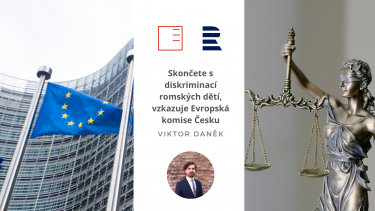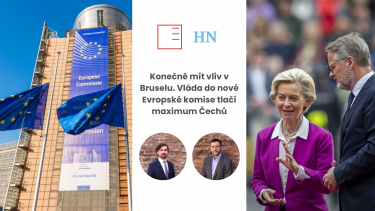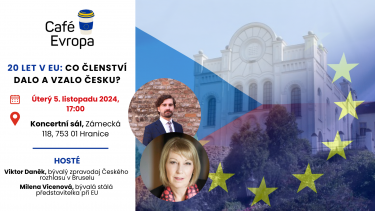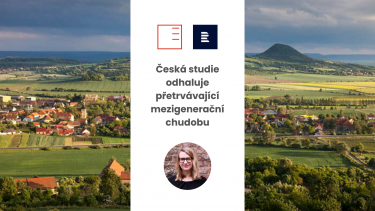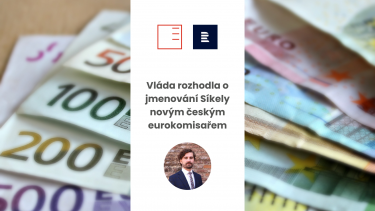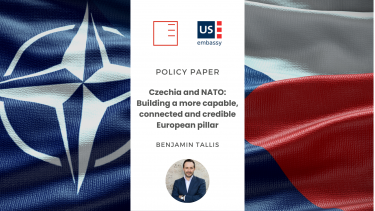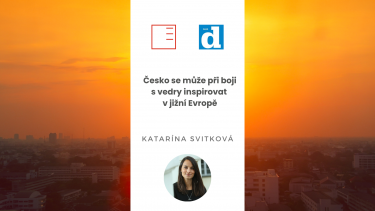Český rozhlas | End discrimination against Roma children, says the European Commission to the Czech Republic
According to the European Commission, the Czech Republic is not complying with EU legislation on combating racial and ethnic discrimination. Brussels has therefore initiated infringement proceedings. It claims that the Czech Republic is not effectively addressing the problem of segregation of Roma children in schools. Deputy director at EUROPEUM Institute Viktor Daněk commented for Český rozhlas.
Show moreHospodářské noviny | To finally have influence in Brussels. The government is pushing the maximum number of Czechs into the new European Commission
According to Politico, two thousand people have sent their CVs to the future head of the EU's common foreign policy, Kaja Kallas. This way they are applying for a place in her cabinet, i.e. in the team of her closest collaborators. Including assistants, there are usually up to 20 people in the cabinets of individual commissioners. Viktor Daněk, deputy director of the EUROPEUM Institute, and Filip Křenek, EUROPEUM analyst, commented for Hospodářské noviny.
Show more
Café Evropa | 20 years in the EU: what has membership given to and taken away from Czechia?
Come and discuss at the next Café Evropa debate series! This time we will visit City of Hranice. Are you interested in how the Green Deal will affect the city, how to draw EU subsidies for local projects, the impact of adopting the euro, security or other European topics?
Show moreCafé Evropa | 20 years in the EU: Benefits and drawbacks of the membership for Litomyšl
Come join the next event in the Café Evropa regional debate series; this time, we’ll be in Litomyšl. What do you think of 20 years of Czechia in the EU? Are you concerned about what the Migration Pact or the Green Deal might bring? Have European subsidies helped in the development of the town? What has the European Union given and taken from you? We want to hear from you!
Show moreCzech Radio | Czech study reveals persistent poverty across generations
A recent analysis by the Czech Statistical Office found that children from low-income families often remain in the lower income brackets as adults. Over a third of those who experienced childhood financial hardship continue to be among the least wealthy. Klára Votavová, an Associate Research Fellow at EUROPEUM Institute, discussed why Czechia struggles with persistent poverty and the impact of education on social status in an interview for Czech Radio.
Show moreCzech Radio | Government agrees on Síkela as new Czech EU Commissioner
The Czech government has nominated its current Minister of Industry and Trade, Jozef Síkela, for the role of European Commissioner, aiming to secure an economic portfolio. In doing so, they are bypassing European Commission President Ursula von der Leyen's request to put forward both a male and a female candidate. Viktor Daněk, Deputy Director of EUROPEUM Institute, discussed the decision and its implications on Czech Radio.
Show moreČTK | Commission President is assembling her team of commissioners, but so far has few candidates
After being approved by the European Parliament, European Commission President Ursula von der Leyen is starting to assemble her team of commissioners. Some countries have already submitted their candidates, but many are still pending, including the Czech Republic. In Czechia, discussions about potential candidates are ongoing, with additional names being proposed alongside those suggested by the STAN political party. Viktor Daněk, Deputy Director of EUROPEUM Institute, comments on the situation for Czech News Agency.
Show morePolicy paper | Czechia and NATO: Building a more capable, connected and credible European pillar
CEE allies are key to building the capabilities-based, European Pillar NATO needs to enact genuine burden shifting and secure the alliance’s future. Dr Benjamin Tallis shows how Czechia can build on recent progress in defense procurement and increase its influence by prioritising the six elements Euro-NATO needs: core national war-fighting capabilities, logistics, military mobility, strategic enablers, air defence and long-range strategic strike.
Show moreDeník.cz | Czech Republic can find inspiration in southern Europe in the fight heatwaves
Czech cities could take inspiration in combating high temperatures from cities in southern Europe, such as Barcelona, which has effective plans and is well-adapted to extreme heat. Barcelona boasts over two hundred climate shelters in publicly accessible institutions like museums, galleries, offices, and libraries, providing drinking water, air conditioning, and informational services. According to Katarína Svitková, an Associate Research Fellow at EUROPEUM Institute, Czechia lacks action plans and responds to heat only at the last minute. Preparedness for tropical days is crucial for protecting the population, especially seniors and young children, for whom summer days are the most demanding.
Show more
Policy Brief | Were Czech industrial policy interests reflected in EU 2024-2029 strategic agenda discussions?
In light of the recent return of industrial policy to the global and EU stage, this policy brief outlines how Czech interests in this policy were reflected in the debates leading up to the adoption of 2024-2029 EU strategic agenda. First, it strives to define Czech industrial policy interests, outlining two alternative approaches to how they can be perceived. The liberal approach follows the long established consensus, according to which Czechia – as a very open, export oriented economy – should promote above all a seamless Single Market and free trade. Writes EUROPEUM Institute researcher Klára Votavová in her Policy Brief.
Show moreStaroměstské náměstí 4/1
Prague 1 - Staré Město
110 00
tel.: +420 212 246 552
email: europeum@europeum.org
https://www.europeum.org
